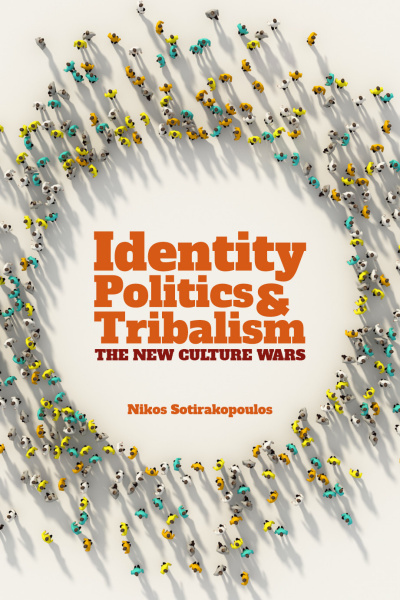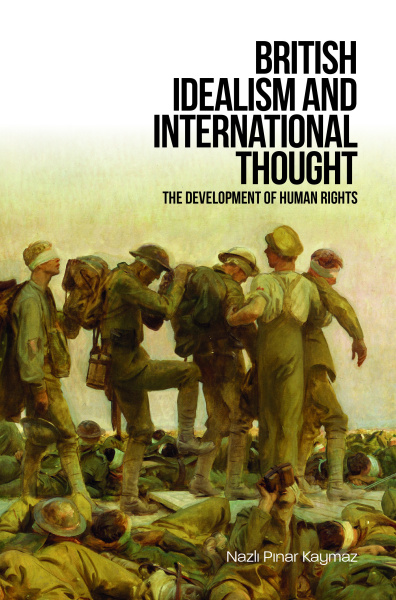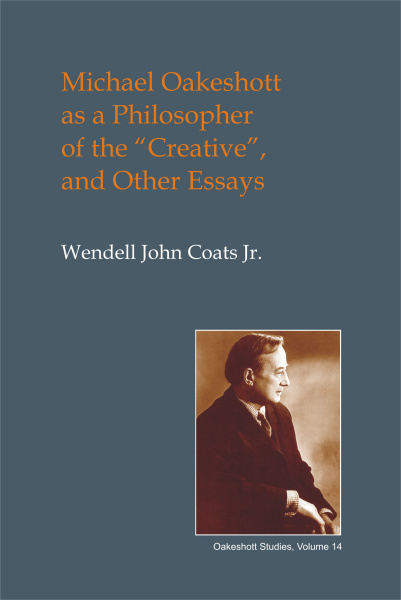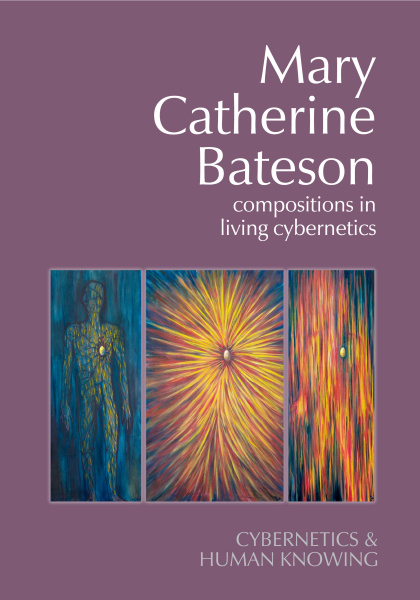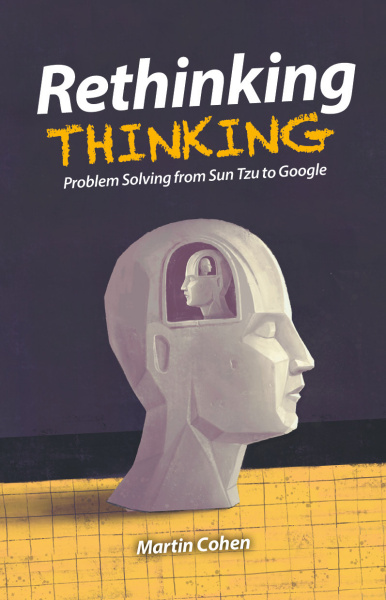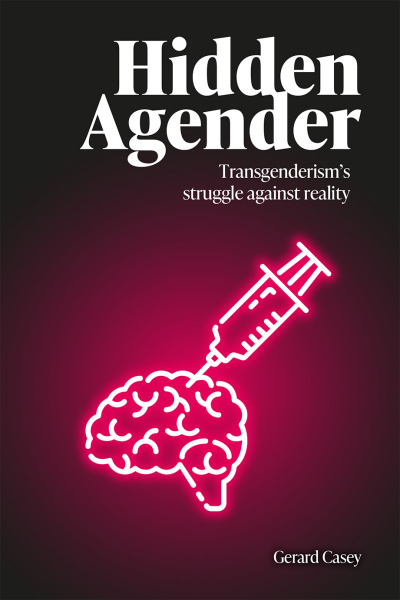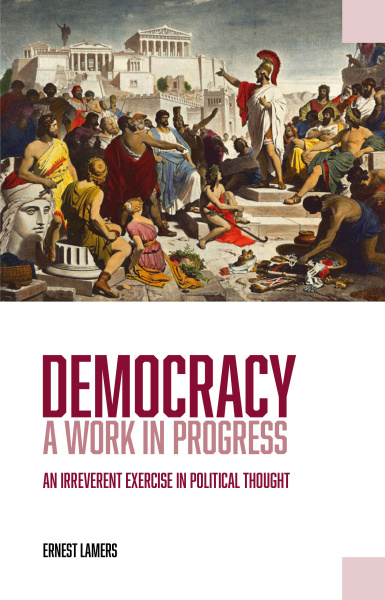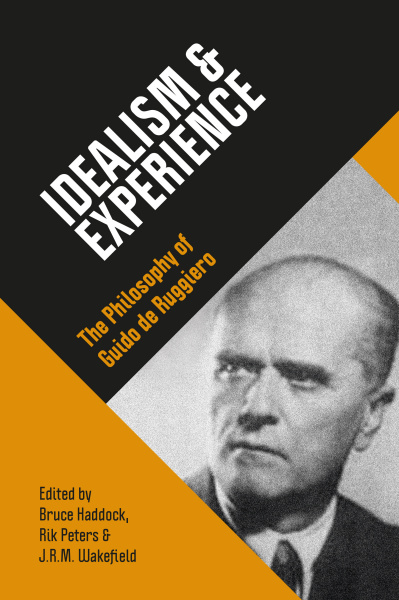Imprint Academic
-

Ancient Evenings
Nine Pyrrhonian Dialogues
Ancient Evenings is a study of consciousness presented as a series of fictional philosophical dialogues - on good and evil, truth and falsehood, life and death - set at the height of the Roman Empire.
-

Idealism & Experience
The Philosophy of Guido de Ruggiero
Idealism & Experience: The Philosophy of Guido de Ruggiero comprises eight new critical essays, as well as English translations of five of de Ruggiero's most important shorter writings, which chart the development of his thought between 1914 and 1946.
-

Michael Oakeshott as a Philosopher of the "Creative"
And Other Essays
This book is a collection of eight essays on the work of the twentieth-century English philosophic essayist, Michael Oakeshott. Six of them advance the view in different ways that Oakeshott's multifarious lifework may be understood as variations on a singular insight — that the structure of experiential reality is 'creative' or 'poetic'.
-

The Life and Philosophy of Elizabeth Anscombe
This volume in the St Andrews series contains a collection of essays from leading authors regarding the work of Elizabeth Anscombe, in particular issues in mind and metaphysics, and can be considered a partner work to 2016's The Moral Philosophy of Elizabeth Anscombe (also published by Imprint Academic).
-

Lady Mary Shepherd
Selected Writings
A collection of works published by Lady Mary Shepherd, brought together in one volume with an introduction by the editor and published as part of the Library of Scottish Philosophy series.
-

Michael Oakeshott: Notebooks, 1922-86
The sixth volume in the series Michael Oakeshott: Selected Writings. From the 1920s to the 1980s Oakeshott filled dozens of notebooks with his private reflections, both personal and intellectual. Their contents range from aphorisms to miniature essays, forming a unique record of his intellectual trajectory over his entire career.
-

Thomas Reid on Religion
This volume — a companion to Thomas Reid: Selected Philosophical Writings (2012) — makes available material from Thomas Reid's autograph manuscripts and student notes of his lectures. It includes an introductory essay by Nicholas Wolterstorff.
-

The Place of Michael Oakeshott in Contemporary Western and Non-Western Thought
Essays by contributors from Britain, Canada, Hong Kong, India, and the USA provide a comprehensive critical assessment of the principal aspects of Oakeshott's thought that account for his contemporary relevance.
-

Lord Kames
Selected Writings
Library of Scottish Philosophy volume containing selected writings of Henry Home, Lord Kames, judge, jurist and philosopher.
-

The Moral Philosophy of Elizabeth Anscombe
In this collection of new essays deriving from a conference held in Oxford aspects of Elizabeth Anscombe's moral philosophy are examined. Anyone interested in Anscombe's work all want to read this volume.
-

Spinoza
Basic Concepts
Spinoza: Basic Concepts explores key concepts involved in Spinoza's thinking, relating it to his understanding of philosophy, outlining the arguments and explaining the implications of each concept. Together, the chapters cover the full range of Spinoza’s interdisciplinary system of philosophy.
-

Logic, Truth and Meaning
Writings of G.E.M. Anscombe
This fourth and final volume of writings by Elizabeth Anscombe reprints her Introduction to Wittgenstein's Tractatus, together with a number of later essays on thought and language in which she explores issues of reason, representation, truth and existence.
-

Thought Thinking
The Philosophy of Giovanni Gentile
This book comprises eleven essays on Gentile's thought. Seven of these are new pieces written especially for Thought Thinking, supplemented by new English translations of four of Gentile's shorter works, selected to offer some direct insight into his ideas and style of writing.
-

Giovanni Gentile and the State of Contemporary Constructivism
A Study of Actual Idealist Moral Theory
Giovanni Gentile and the State of Contemporary Constructivism represents the first book-length treatment of actual idealist moral theory.
-

Francis Hutcheson
Selected Philosophical Writings
Known today mainly as a teacher of Adam Smith (1723–90) and an influence on David Hume (1711–76), Francis Hutcheson (1694–1746) was a first-rate thinker whose work deserves study on its own merit. Spanning his entire literary career, this collection brings together selections from Hutcheson's greater and lesser known works.
-

Scottish Philosophy of Rhetoric
The selected writings chosen for this volume show how Scottish rhetorical textbooks were a practical extension of the philosophy of language developed by 18th century Scottish philosophers.
-

History as Thought and Action
The Philosophies of Croce, Gentile, de Ruggiero and Collingwood
This is the first book-length study of the relationship between Benedetto Croce (1866-1952), Giovanni Gentile (1875-1944), Guido de Ruggiero (1888-1948) and Robin George Collingwood (1889-1943).
-

General Will in Political Philosophy
This book deals with the role and place of the general will in modern and contemporary political thought.
-

Oakeshott on Rome and America
This book explores how the histories of Rome and America can help us to understand Oakeshott's claims about rational versus traditional politics.
-

Civil Society, Capitalism and the State
Part Two of the Liberal Socialism of T.H. Green
This book presents a critical reconstruction of the social and political facets of Thomas Hill Green's liberal socialism. It builds on Colin Tyler's The Metaphysics of Self-realisation and Freedom (2010), although it can also be read as a freestanding work.
-

Thomas Reid
Selected Philosophical Writings
The aim of this comprehensive selection of his writings is to make the key elements of Reid's philosophical work available to a new generation of readers.
-

Scottish Philosophy in America
The Scottish Enlightenment provided the fledgling United States of America and its emerging universities with a philosophical orientation. This volume in the Library of Scottish Philosophy demonstrates the remarkable extent of this philosophical influence.
-

The Meanings of Michael Oakeshott's Conservatism
This collection of recent scholarship on the thought of Michael Oakeshott includes essays by both distinguished and established authors as well as a fresh crop of younger talent. Together, they address the meanings of Oakeshott's conservatism through the lenses of his ideas on religion, history, and tradition.
-

From Plato to Wittgenstein
Essays by G.E.M. Anscombe
More treasures from the archive of papers left by philosopher Elizabeth Anscombe, edited by her daughter and son-in-law, philosophers Mary Geach and Luke Gormally.
-

James Frederick Ferrier
Selected Writings
This volume contains selections from the philosophical writings of James Frederick Ferrier (1808-1864). Ferrier was the Professor of Moral Philosophy at the University of St Andrews between 1845 and 1864 and he was one of the earliest post-Hegelian British idealists.
-

The Happy Passion
A Personal View of Jacob Bronowski
Bronowski was a professional scientist, scientific administrator, poet, philosopher, dramatist and TV and radio personality. His final achievement, the groundbreaking television series The Ascent of Man influenced and inspired millions of ordinary people by bringing an awareness of human evolution and the adventure of science into their homes.
-

Michael Oakeshott: Early Political Writings 1925-30
A discussion of some matters preliminary to the study of political philosophy' and 'The philosophical approach to politics
This volume contains two previously unpublished works, a manuscript entitled 'A Discussion of some Matters Preliminary to the Study of Political Philosophy', and the first version of a course of lectures on 'The Philosophical Approach to Politics' that Oakeshott gave between 1928 and 1930.
-

The Metaphysics of Self-realisation and Freedom
Part One of the Liberal Socialism of Thomas Hill Green
This first part of Colin Tyler's new critical assessment of the social and political thought of T.H. Green (1836–1882) explores the grounding that Green gives to liberal socialism.
-

Thomas Brown
Selected Philosophical Writings
The selections in this volume illustrate Brown's original ideas about mental science, cause and effect, emotions and ethics. They are preceded by an introduction situating Brown’s career and writings in their intellectual and historical context.
-

The Foundations of History
Collingwood's Analysis of Historical Explanation
This book provides an exposition and critical examination of Collingwood's philosophy of history, in which Collingwood's views are read in the light of his metaphilosophy.
-

Hobbes's Behemoth
Religion and Democracy
This volume contains analyses and interpretations of the Behemoth: the structure of its argument, its relation to Hobbes's other writings, and its place in its philosophical, theological, political, and religious historical context.
-

Moral, Social and Political Philosophy of the British Idealists
The British idealists of the late 19th and early 20th century are best known for their contributions to metaphysics, logic, and political philosophy. Yet they also made important contributions to social and public policy, social and moral philosophy and moral education, as shown by this volume.
-

The Concept of a Philosophical Jurisprudence
This volume brings together for the first time over a hundred of Oakeshott's essays and reviews, written between 1926 and 1951, that until now have remained scattered through a variety of scholarly journals, periodicals and newspapers.
-

The Democratic Theory of Michael Oakeshott
Discourse, Contingency and the Politics of Conversation
This book offers a description, explanation, and evaluation of Michael Oakeshott's democratic theory. He was not a democratic theorist as such, but as a twentieth-century English political theorist for whom liberal theory held deep importance, his thought often engaged democratic theory implicitly, and many times did so explicitly.
-

Vocabulary of a Modern European State
Essays and Reviews 1953-1988
The Vocabulary of a Modern European State is the companion volume to The Concept of a Philosophical Jurisprudence and completes the enterprise of gathering together Oakeshott's previously scattered essays and reviews.
-

Liberty, Authority, Formality
The essays in this volume are all inspired by the historical scholarship of J.C. Davis. Davis's analyses of groups like the Levellers and individuals like Gerrard Winstanley and Oliver Cromwell has reoriented the inquiry around the contemporary moral themes of liberty, authority and formality -- around which concepts this volume engages.
-

Michael Oakeshott, the Ancient Greeks, and the Philosophical Study of Politics
This book addresses a question fundamental for Oakeshott throughout his life, which is what we are doing when we read and discuss some memorable work in the history of political thought.
-

Luhmann Applied
This book brings together international experts on the application of Niklas Luhmann's theory of society as autopoietic communication.
-

Froude Today
A.L. Rowse called fellow-historian James Anthony Froude the 'last great Victorian awaiting revival'. The question of power is the problem that perplexes every age: in his historical works Froude examined how it applied to the Tudor period, and defended Carlyle against the charge that he held the doctrine that ‘Might is Right’.
-

Collingwood and the Crisis of Western Civilisation
Art, Metaphysics and Dialectic
This book argues that Collingwood's philosophy is best understood as a diagnosis of and response to a crisis of Western civilisation. He is demonstrated to be working in the traditions of Romanticism and 'historicism'.
-

Unpublished Manuscripts in British Idealism
Political Philosophy, Theology and Social Thought
The British Idealist movement flourished between the 1860s and 1920s and exerted a very significant influence in the USA, India and Canada, most notably on John Dewey and Josiah Royce. This important collection widens access to unpublished material by transcribing, editing and then publishing the most significant pieces.
-

Education and the Voice of Michael Oakeshott
The work of Michael Oakeshott has retained a striking currency in philosophical discourse about education. In the light of this continuing interest and of Oakeshott's extensive writing on so many aspects of education, it is timely that a book be published on his thinking on the subject.
-

Adam Ferguson
Selected Philosophical Writings
A philosopher and historian, Adam Ferguson occupies a unique place within eighteenth-century Scottish thought. Distinguished by a moral and historical bent, his work is framed within a teleological outlook that upholds the importance of action and virtue.
-

Politics and Society in Scottish Thought
This volume illustrates the way political and social philosophers of 18th-century Scotland tried to answer the following question: 'What is, and what ought to be, the relationship between the modern market and stable, desirable social order?'
-

Scottish Philosophical Theology
This volume concentrates on the period from the beginning of the 18th century to the latter part of the 20th. It is impossible to depict a single school of philosophical theology in Scotland across three centuries, yet several strains have been identified.
-

John Grote, Cambridge University and the Development of Victorian Thought
This book answers three questions: How did John Grote develop and contribute to modern Cambridge and British philosophy? What is the significance of these contributions to modern philosophy in general and British Idealism and language philosophy in particular? How were his ideas and his idealism incorporated into the modern philosophical tradition?
-

Dugald Stewart
Selected Philosophical Writings
Dugald Stewart became one of the most influential academics in the eighteenth- and nineteenth-century European 'Republic of Letters'. This volume brings together some of Stewart's philosophical writings.
-

Dialectics of the Self
Transcending Charles Taylor
Charles Taylor is a philosopher concerned with morality and the nature of the identity of individuals and groups in the West. This book offers an evaluation of Taylor's conception of self, and its moral and political possibilities.
-

Jesus and the Trojan War
Myth and Meaning for Today
This book looks at ways in which stories are presented and understood; and how story-tellers - and their listeners - may wittingly or unwittingly confuse fact with fiction. This book explores the parallels between four stories (the Trojan war, Moses, King Arthur, and Jesus).
-

Lectures in the History of Political Thought
Oakeshott's memorable lectures on the history of political thought, delivered each year at the London School of Economics, are now available in print for the first time as Volume II of his Selected Writings.
-

Intimations Pursued
The Voice of Practice in the Conversation of Michael Oakeshott
In this book Andrew Sullivan examines Oakeshott's transition from his original emphasis on philosophy as providing what was ultimately satisfactory in experience to his later emphasis on practical life.
-

Human Life, Action and Ethics
Essays by G.E.M. Anscombe
This volume presents a collection of essays by the celebrated philosopher Elizabeth Anscombe. This collection includes papers on human nature and practical philosophy, together with the classic 'Modern Moral Philosophy'.
-

Religious and Poetic Experience in the Thought of Michael Oakeshott
This book argues that Oakeshott's characterisations of religious and poetic experience provide a more detailed account of the type of persona that emerged in response to what it perceived as an invitation to participate in moral association in the modern world.
-

From a Necessary Evil to an Art of Contingency
Michael Oakeshott's Conception of Political Activity
This book presents a comprehensive study of Oakeshott's conception of political activity. The author first examines Oakeshott in the contexts of liberal, conservative and Idealist thought, and then presents a detailed interpretation of the change in his conception of politics in the context of British postwar political thought.
-

Intellectual Legacy of Michael Oakeshott
This volume brings together a diverse range of perspectives reflecting the international appeal and multi-disciplinary interest that Oakeshott now attracts. The essays offer a variety of approaches to Oakeshott's thought.
-

T.H. Green's Theory of Positive Freedom
In this new and entirely revised edition of his study of Green's theory of positive freedom, Ben Wempe argues that the far-reaching and beneficial influence of Green’s political doctrine, on public policy as well as in the field of political theory, was founded on a misinterpretation of his philosophical stand.
-

Values, Education and the Human World
The essays in this book consist of revised versions of Victor Cook Memorial Lectures.
-

Adam Smith
Selected Philosophical Writings
This anthology collects, for the first time in one volume, not only generous selections from each of Smith's books but also substantial selections from his other work, including his lectures on jurisprudence, his history and philosophy of science, his criticism and belles lettres, and his philosophy of language.
-

Scottish Idealists
Selected Philosophical Writings
This collection of readings, the first of its kind, has been chosen with a view to displaying the variety, richness and strength of the Scottish Idealist tradition.
-

John MacMurray
Selected Philosophical Writings
The philosophy of John Macmurray is only now receiving the attention it deserves. It is in the contemporary climate of dissatisfaction with individualism that Macmurray's emphasis on the relations of persons has come to the fore.
-

James Beattie
Selected Philosophical Writings
The first part of this selection — the first ever made from Beattie's prose writings — includes several key chapters from the Essay on Truth, along with extracts from all of Beattie's other works on moral philosophy. The second part of the selection is devoted to Beattie's contributions to literary criticism and aesthetics.
-

Art and Enlightenment
Scottish Aesthetics in the 18th Century
This volume brings together and provides contextual introductions to the most significant 18th century writing on the philosophy of art.
-

Greenian Moment
This study of T.H. Green views his philosophical opus through his public life and political commitments, and it uses biography as a lens through which to examine Victorian political culture and its moral climate.
-

Scottish Philosophy
Selected Writings 1690-1950
This collection of readings, the first of its kind, has been chosen with a view to displaying the variety, richness and strength of the Scottish philosophical tradition.
-

What is History? And Other Essays
Selected Writings
This highly readable new collection of thirty pieces by Michael Oakeshott, almost all of which are previously unpublished, covers every decade of his intellectual career.
-

How Good an Historian Shall I be?
In this book Marnie Hughes-Warrington begins with the facet of Collingwood's work best known to teachers — re-enactment — and locates it in historically-informed discussions on empathy, imagination and history education.
-

Michael Oakeshott on Hobbes
While many commentators have noted the importance of Hobbes for understanding Oakeshott's thought itself, this is the first book to provide a systematic interpretation of Oakeshott’s philosophy by paying close attention to all facets of Oakeshott’s reading of Hobbes.
-

In Defence of Modernity
The Social Thought of Michael Oakeshott
Although Oakeshott's philosophy has received considerable attention, the vision which underlies it has been almost completely ignored. This vision, which is rooted in the intellectual debates of his epoch, cements his ideas into a coherent whole and provides a compelling defence of modernity.
-

Metaphysics, Method and Politics
The Political Philosophy of R.G.Collingwood
This book argues that Collingwood developed a complete political philosophy of civilization. It also demonstrates that his philosophical work comprises a unity in which there is no fundamental discontinuity between his earlier and later writings.
-

Oakeshott on History
This book challenges the common view that Michael Oakeshott was mainly important as a political philosopher by offering the first comprehensive study of his ideas on history.
-

Sceptical Idealist
Michael Oakeshott as a Critic of the Enlightenment
This is the first book-length study to provide a structured interpretation of the significance of Michael Oakeshott's critique of the Enlightenment.
-

Philosophy and Living
Philosophy can be very abstract and apparently remote from our everyday concerns. In this book the author brings out for the non-specialist the bearing that thinkers of the past have on the way we live now, on the attitude we have towards our lives, towards each other and our society, towards God and towards the ethical problems that confront us.
